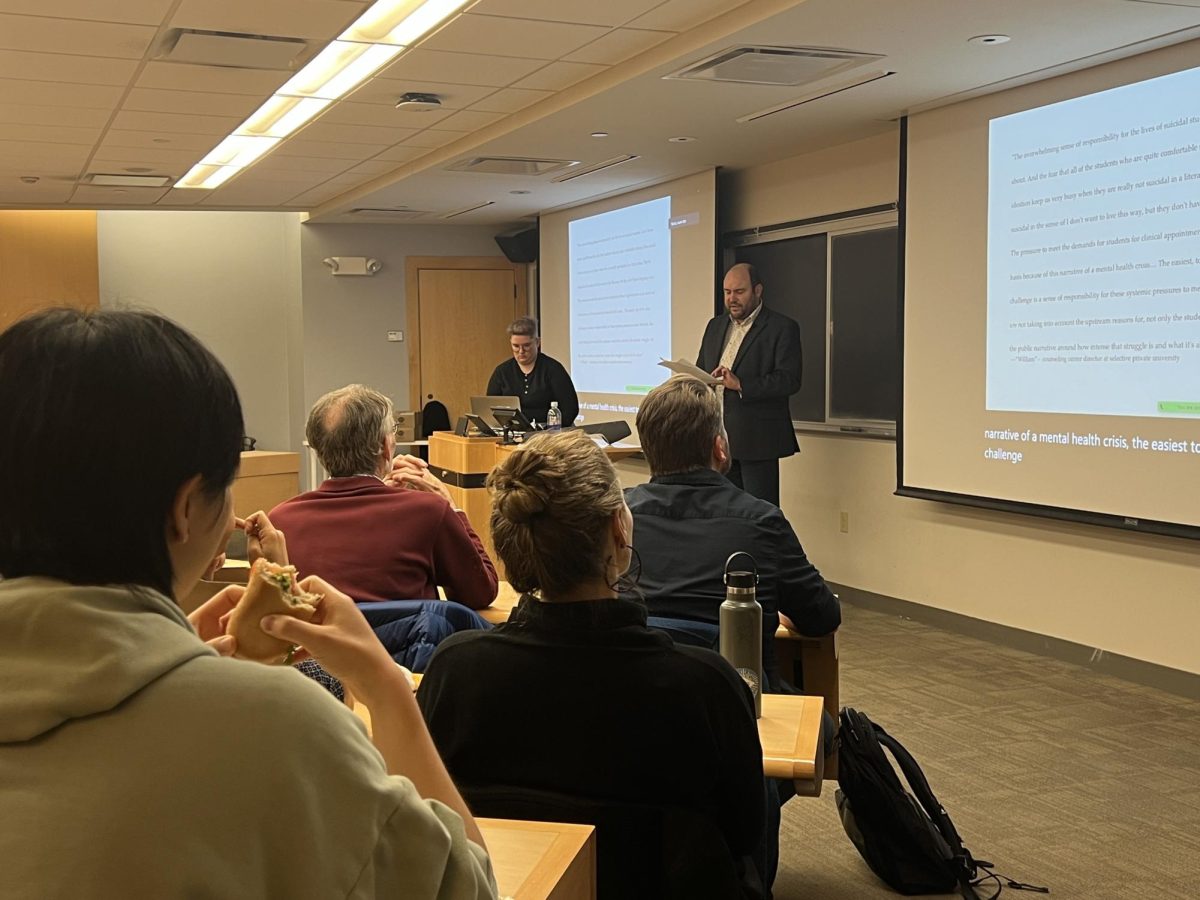University of Chicago comparative human development associate Prof. Eugene Raikhel said college students’ mental health has become “urgent” during his talk “Crisis and Critique in College Mental Health” on Nov. 15.
Held at 555 Clark St., the event is the first in the Global Health Studies program’s annual speaker series. The talk, focusing on arguments made by 35 U.S. college mental health professionals Raikhel interviewed, attracted 30 attendees.
Raikhel said there are higher rates of mental distress among young people due to institutional and social factors. He added that the mental health professionals he spoke to were critical of how mental health is often framed as a “crisis.”
“This idea of crisis as a framing device … makes certain types of assumptions and makes foreground certain responses over others,” Raikhel said.
Raikhel said mental health encompassed too many systemic issues and complexities for it to be referred to as simply a “crisis.”
Rather than a “crisis in mental health,” some interviewees instead framed the issue as a “crisis of higher education,” according to Raikhel.
Global health Prof. Peter Locke organized this year’s speaker series. He said more could be done to reduce student distress at Northwestern.
“(It’s important to) reframe the problem in a way that doesn’t amplify the problem,” Locke said. “The language of ‘crisis’ might not be doing us any favors.”
Locke said NU faculty are concerned about the marketing slogan “And is in our DNA” and that because of it, many students “overload” themselves with classes, adding another major or minor and extracurriculars.
Weinberg sophomore and attendee Erika Ruiz-Yamamoto, who is on the premedical track, said it is interesting that mental health issues are normalized in higher education “in some ways” and that there is a “fine balance” between normalizing issues and sensationalizing them.
“(NU) does have a climate of achievement and pressure to succeed and a little bit of competitiveness, especially in the premedical environment,” Ruiz-Yamamto said. “The quarter system is very unforgiving if you need to take a break. I think a lot of issues can compound and that can definitely contribute to why students might develop mental health issues here.”
Global health and anthropology Prof. William Leonard, who has taught at NU for 26 years, said there has been progress in the last decade for mental health at NU, but there is still “much work to be done.”
There is a competitive nature built into the academics at NU, causing students to put pressure on themselves to know their professional track, Leonard said.
“I plan to continue to let other students know that I am available to help and support them,” Leonard said. “Not just in terms of the facts and figures of what I am teaching, but supporting them as individuals and learners in this environment.”
Email: ridhimakodali2027@u.northwestern.edu
Related Stories:
— Dawodu: I was dismissed from NU for bad grades. The University needs to prioritize mental health
— NU Declassified: Double the degree, double the possibilities







